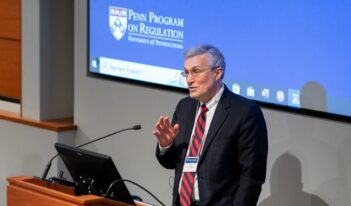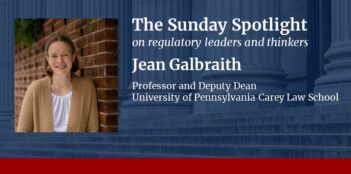
Around the world, administrative law promises to promote effective and legitimate government.
The bulk of public governance in any country is carried out by administrative agencies. These are the many departments, ministries, commissions, and other government offices that handle the day-to-day matters of governing that directly affect business operations and the lives and livelihoods of individuals.
Given the dominant role played by these administrative institutions, aspirations for government under the rule of the law—instead of under arbitrary power—depends vitally the doctrines and principles of administrative law. These doctrines and principles, when enforced by courts and adhered to government officials, can positively affect both the efficacy and legitimacy of governmental action.
To understand better about how administrative law operates—and how it can be improved—scholars and practitioners benefit from learning how this domain of law operates in different legal systems around the globe. Thanks to a series of important cross-national collaborations, the comparative study of administrative law has flourished in recent years among scholars from the United States, Europe, Asia, and elsewhere.
The Penn Program on Regulation (PPR) has long supported the comparative study of administrative law. In addition to regularly hosting visiting scholars from around the world, PPR holds events and supports research on a variety of cross-national legal and regulatory issues. In June of this year, thanks to the initiative of Research Affiliate Neysun Mahboubi, PPR organized a workshop held at the University of Pennsylvania’s law school on “Administrative Procedure Reform in Europe and the United States.”
The June 2022 workshop was organized with additional support from Penn’s Perry World House and dovetailed with a visit to campus by Giacinto della Cananea from the Università Bocconi. The workshop brought together about two dozen additional leading administrative law scholars for a discussion of critical issues confronting courts and governments around the world.
The Regulatory Review is pleased to publish this series of essays by participants in the June 2022 workshop. Curated by Cary Coglianese, PPR’s Director and the Edward B. Shils Professor of Law at Penn, the essays in this series extend and deepen the workshop’s dialogue and share workshop participants’ insights with The Review’s broad, global readership.
This series features contributions by: Giacinto della Cananea, Università Bocconi; Craig Green, Temple University Beasley School of Law; José Ignacio Hernández G., Harvard University and the Universidad Central de Venezuela; Jeffrey Lubbers, American University Washington College of Law; Susan Rose-Ackerman, Yale Law School; and Paul R. Verkuil, the former Chairman of the Administrative Conference of the United States.
Administrative Procedure in Europe
October 31 | Giacinto della Cananea, Università Bocconi
Comparative law scholars uncover similarities and differences in administrative procedure across Europe.
Policymaking Accountability in Nation States and International Bodies
November 1 | Susan Rose-Ackerman, Yale Law School
Robust efforts to include the public in rulemaking are key to increasing democratic accountability.
Policymaking Accountability and the Emerging Authoritarian State
November 2 | Paul R. Verkuil, Administrative Conference of the United States
Changing norms about administrative appointments raise concerns about procedural fairness and accountability.
Administrative Procedure Acts in Latin America
November 3 | José Ignacio Hernández, Universidad Central de Venezuela
Administrative law faces unique challenges in Latin America’s “paper leviathans.”
Perils of Comparative Administrative Law
November 7 | Craig Green, Temple University Beasley School of Law
Textualism represents a dangerous temptation for comparative analysis of administrative procedure.
Putting the U.S. Administrative Procedure Act in Perspective
November 8 | Jeffrey Lubbers, American University Washington College of Law
Efforts to modernize the APA should be approached with caution.



